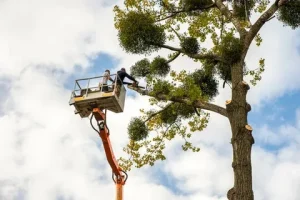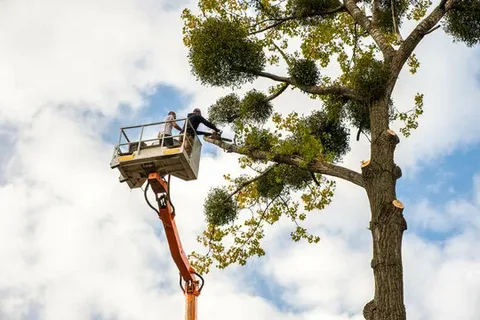Hedges and trees form an essential part of both rural and urban landscapes across the UK. They provide shelter for wildlife, act as natural boundaries, and contribute to the overall beauty of gardens and neighborhoods. However, maintaining them is not just a matter of aesthetics—it is also a matter of law. Many homeowners are unaware that hedge cutting and tree work are regulated, and that failure to comply with these regulations could lead to fines or disputes with neighbors. That’s why it’s crucial to understand the Cutting hedges law and to know when to call in a trusted expert such as a professional tree surgeon.
In towns like Loughborough, where greenery is abundant, proper hedge and tree management is essential for preserving both private gardens and shared community spaces. Homeowners, landlords, and property managers often rely on the expertise of a Loughborough tree surgeon to ensure their outdoor spaces remain safe, healthy, and legally maintained.
Why Hedge Cutting Laws Exist
Hedge cutting regulations are in place primarily to protect wildlife. Many birds nest in hedgerows, and the breeding season generally runs from March to August. During this time, cutting back hedges could disturb nesting birds and destroy habitats. This is why UK law advises against hedge cutting during the peak nesting months, except in cases where the hedge poses a safety risk—such as blocking visibility on a road or encroaching dangerously on pathways.
The law also exists to maintain neighborly harmony. Overgrown hedges can block sunlight, extend into another person’s property, or interfere with shared boundaries. By following established hedge cutting guidelines, disputes can be minimized and properties can remain pleasant for everyone involved.
When You Can Legally Cut Hedges
While the primary restriction is the bird nesting season, it’s worth noting that hedge cutting can legally take place outside of these months. Ideally, the best times to trim hedges are late autumn and winter, when wildlife activity is low. However, if a hedge is causing an obstruction to traffic or poses a safety hazard, it may be cut back at any time of the year—though care must still be taken to check for nesting birds before any work begins.
Gardeners and property owners must also be aware of additional protections. Some hedges may be protected under preservation orders, or fall within conservation areas where extra permissions are required before work is carried out. This makes it even more important to be aware of the local cutting hedges law before taking action.
Why Professional Help Matters
Although it might seem simple to trim a hedge with basic garden tools, the reality is that hedge management is more complicated than most people realize. Incorrect cutting can harm the health of the hedge, leaving it patchy, weakened, or vulnerable to disease. In addition, working at height or near power lines can be dangerous without the right equipment and training.
This is where the services of a qualified Loughborough tree surgeon become invaluable. Tree surgeons are trained not just in trimming and shaping hedges, but also in managing tree health, identifying potential risks, and carrying out work in compliance with local regulations. They have the tools, safety gear, and knowledge required to ensure the job is done properly and safely.
The Role of Tree Surgeons in Loughborough
Loughborough, with its mix of suburban homes, parks, and open spaces, relies on professional arborists and tree surgeons to maintain its green areas. These specialists do far more than just cut trees—they carry out comprehensive assessments of tree health, perform pruning to encourage growth, remove hazardous branches, and provide stump grinding and removal services.
When it comes to hedge cutting, a tree surgeon can advise on the best times of year for trimming, ensuring compliance with the law and avoiding disruption to wildlife. They also know how to shape hedges in a way that enhances the appearance of a garden while keeping them healthy and strong for years to come.
Balancing Aesthetics, Safety, and Legality
A well-kept hedge or tree not only improves the look of a property but also plays an important role in maintaining safety. Overhanging branches can pose risks to cars and pedestrians, while poorly maintained hedges can obscure sightlines along roads. Professional maintenance strikes the balance between keeping a garden attractive, ensuring public safety, and respecting wildlife and the law.
It’s also worth noting that hedge height can be a contentious issue between neighbors. Under the Anti-Social Behaviour Act 2003, homeowners may be required to reduce hedge height if it is deemed excessive and negatively impacts a neighbor’s enjoyment of their property. This is yet another reason why working with an expert is beneficial—they can provide impartial advice and professional solutions to avoid conflict.
The Long-Term Benefits of Proper Hedge and Tree Care
Investing in regular maintenance carried out by professionals offers long-term rewards. Healthy trees and hedges increase property value, reduce the likelihood of expensive emergency work, and enhance the overall enjoyment of outdoor spaces. They also contribute positively to the local environment, supporting biodiversity and reducing pollution.
For Loughborough residents, having access to reliable tree surgeons means they can maintain their outdoor spaces with peace of mind. Whether it’s trimming a hedge at the right time of year or addressing a diseased tree before it becomes hazardous, the guidance of professionals ensures both compliance with the law and the protection of nature.
Conclusion
Understanding the laws around hedge cutting is vital for any homeowner or property manager. While it may be tempting to grab the clippers and get to work, the risks—legal, environmental, and safety-related—make it wiser to seek expert guidance. By respecting the cutting hedges law and working with a skilled Loughborough tree surgeon, you can ensure your outdoor spaces are safe, attractive, and fully compliant with regulations. In the end, this approach benefits not just your garden but also your community and the wider environment.








